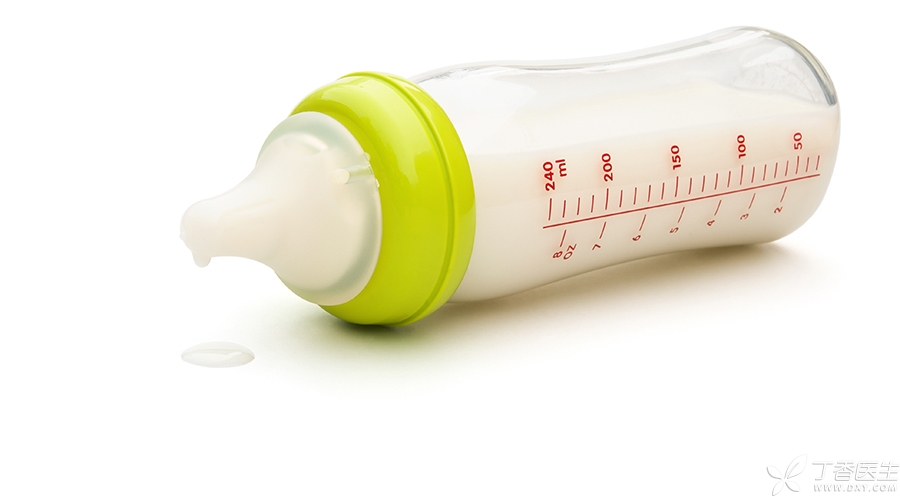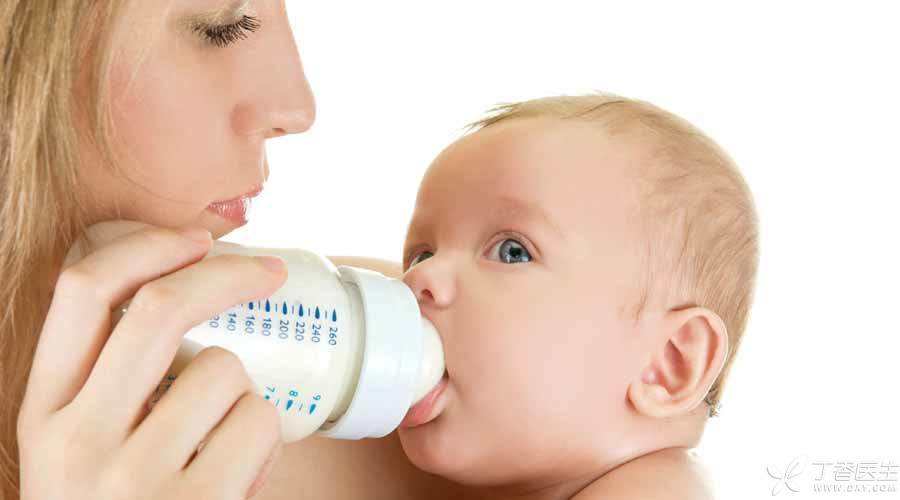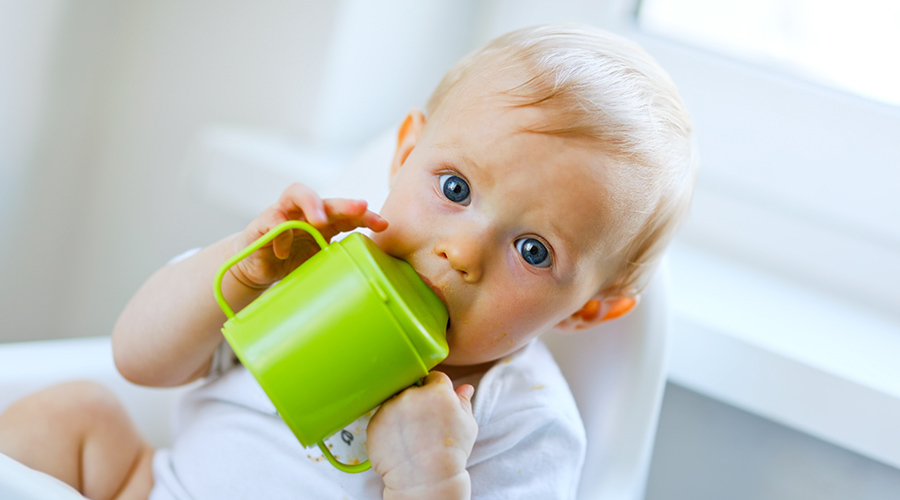
The American Academy of Pediatrics suggests that babies should gradually stop using bottles at the age of 1 and quit bottles 15 months ago.
This has worried a lot of parents, especially those who have only lost their milk at the age of one and have just learned to drink milk from bottles.
My children don’t need bottles and don’t drink milk. In order to quit bottles, they have gas with their children every day!
It is said that eating bottles after the age of 1 will cause tooth deformity, is it true?
My family is now 3 years old and is still used to drinking milk in bottles before going to bed. Is it that serious?
Today, Dr. Clove came to talk about the “perplexity of feeding bottles” in mothers’ minds.
Why is it suggested that the baby gradually quit the bottle after one year old?
There are generally four kinds of widely circulated hazards of feeding bottles, one by one.
1. Dental caries risk
Risk Index:
Many babies are used to drinking bedtime milk with bottles and even sleeping with pacifiers. In addition, babies who prefer bottles are also used to drinking all drinks with bottles and may also contain fruit juice. If they drink for a long time and do not clean in time, there is a risk of dental caries.
I remember a long time ago there was a sensational rumor that [the baby’s incisors were cut short]. In fact, it was because the baby relied too much on sleeping in the bottle that the incisors were blackened, referred to as [bottle caries].

2. Risk of obesity
Risk Index:
Babies rely on bottles. On the one hand, they are used to drinking milk from bottles. On the other hand, they feel that bottles are [convenient and large in quantity] (this principle is somewhat similar to babies’ habit of not recognizing nipples after bottles). Therefore, this situation will cause some babies to drink too much and drink as they want. It is easy to eat more milk unconsciously, thus causing obesity.
3. Risks affecting language development
Risk Index:
Babies who rely too much on bottles will contain bottles many times of the day, which will affect their own eating, prevent oral muscles from being exercised, prevent babies from learning to speak, and lead to ambiguous speech.

4. Risk affecting oral development
Risk Index:
This is the most worrying point for many parents, who are afraid that their babies will rely too much on bottles, causing buck teeth and affecting their facial values.
In fact, the influence of bottles on oral function is still controversial. The main functions of human oral cavity are chewing, swallowing, language and other functions. Sucking is the earliest oral function, but it gradually degenerates in the process of growing up, which is why many adults do not use bottles and pacifiers well instead.
For the time being, there is no research to prove that the use of feeding bottles will affect the development of baby’s teeth and face shape.
How to help your baby get rid of bottles scientifically?

Since we know the possibility that bottles are harmful to babies, we must give up bottles scientifically.
1. Substitution of tools
After the baby is 6 months old, after he can sit up and eat supplementary food, he can gradually use the cup with suction mouth or straw, and slowly transition from the bottle to the cup.
To tell the baby that the cup is the correct way to open the cup for drinking water and milk, you can give the baby a cup to drink water first, and after getting used to it, slowly put the milk into the cup to drink.
When children learn and gradually get used to drinking liquid food in containers other than bottles, they can give up bottles for their babies.
My family is over one year old and Li has not practiced before. Is it still too late?
After the age of 1, it is also possible. As long as the baby can skillfully use duckbill cup, straw cup or cup, he can slowly guide him to quit.

2. Conversion of Comfort
For babies who [the bottle is only a tool for drinking milk], the transition from the bottle to the cup is relatively easy.
However, if the bottle is still a [necessary soothing substance] for the baby, it is not so easy to quit the bottle, such as like to sleep with the bottle and suck the pacifier to soothe the mood.
Such babies need to spend more time replacing bottles and pacifiers with other soothing methods.
For babies who sleep while drinking milk, the time for drinking milk should be advanced, and bedtime ceremonies (such as bathing, brushing teeth, changing sleeping bags and reading picture books) should be used instead of drinking milk to avoid linking sleep with drinking milk.
However, when the baby needs emotional comfort, the little baby can use bite glue or other comforters. What the big baby needs more is the love and companionship of the mother.
The baby just can’t quit, how to minimize the risk?

Many mothers will say that they understand the truth, but still the baby just can’t quit.
Especially for babies with [consolation significance], to quit the bottle may be subject to the baby’s [refusal to eat resistance]. Sometimes parents are impatient and too tough, which will even cause the baby’s uneasiness and even lead to [seesaw battle for the bottle], affecting the mood of the whole family.
In fact, in the process of child-rearing, the principle we suggest to follow is [weighing the pros and cons and minimizing the harm]. Perhaps the bottle has such and such risks to the child, but if it is given off too forcibly, it will cause greater psychological shadow to the baby, especially the baby with weak sense of security.

Looking back at all kinds of hazards of milk bottles, there is actually a [degree] problem. The biggest reason for the hazards is the baby’s excessive dependence on milk bottles.
At this moment, there is a second question: can how give up the situation of not being able to give up the bottle, and can how reduce the risk of harm to a lower level?
We can do this:
1. Afraid of baby dental caries?
The milk time before going to bed should be as early as possible, gargling and brushing teeth after drinking. Don’t give your baby the habit of drinking fruit juice and other drinks in bottles.
2. Afraid of the baby getting fat?
Control your baby’s milk. The Chinese Nutrition Society recommends that children aged 1-2 in China should have about 500 ml of milk per day, and children aged 2-3 should have 300-400 ml of milk or equivalent milk products per day. Don’t overdo it.
3. Afraid of affecting the baby’s language development?
Establish a bottle time (only when you have a good drink of milk with your baby) and limit the daily bottle time.
Finally, raising children is not dogmatic and is not based on books. Parents need to weigh and find the most suitable model for raising children.
The process of child-rearing is not a process in which you and your child torture and compete with each other, but a process in which both you and your child are happy.
